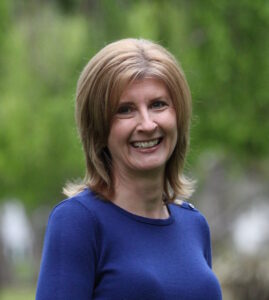
Pauline Wiles shares her philosophy of purposeful productivity for writers on her Facebook group (click image for link)
Have you heard the advice: Don’t compare yourself to other writers? Or maybe the famous quote from Theodore Roosevelt: “Comparison is the thief of joy”? These words are well-meant. However, for indie authors especially, I believe they’re too limiting , writes Pauline Wiles. And here's why
A Habit Acquired in Childhood
Think back to when you were young. Almost every child learns by comparing themselves with others. Perhaps you were still crawling aimlessly, when your sibling could walk. Perhaps you were slurping juice with chubby fingers clasped around a plastic cup, while a parent sipped tea one-handed. Chances are, you began to learn what was possible, by watching family members.
Just as some of our essential childhood development comes from observing others, so too does our ability to grow during adult life.

(Image by @benwhitephotography via unsplash.com)
As Applied to Indie Authors
As indie authors, we are especially likely to be curious, nimble and willing to learn. We’re in a terrific position to collaborate with other authors, or innovate in exciting ways. The indie author community is exceptionally strong, too, at sharing advice in online forums and through organizations such as ALLi. And you might be particularly curious about how other authors are faring if you’re still finding your feet in your writing business.
So it’s natural, and, I would argue, positive, that we look at other authors with an inquisitive eye.
How to Keep It Positive
The trick, however, is to compare mindfully and carefully. Your mindset as an adult, after all, may be more wary than the eager fascination of your childhood. Ideally, comparisons should contribute to your growth as an author, not mire you in self-criticism.
Here are seven tips to help:
1 Define Your Own Terms
Have you taken the time recently to think about what success as an indie author means to you? There are so many different ways to achieve a feeling of satisfaction in our industry. You might measure your accomplishments in terms of readers reached, copies sold, review rankings, profit banked, lives changed, fame attained, or even inches occupied on the shelf in your local bookstore. Being clear on your own goals is hugely helpful when you glimpse what others have attained. One author’s pinnacle might be another’s detour.
2 Keep An Eye on Yourself
Practise catching yourself whenever you begin comparing with another author. Just notice that’s what you’re doing. Sometimes, it can be helpful to label the behavior, even going so far as to mutter to yourself, “Aha, I’m comparing right now.” This brings mindfulness to your thought process, which is enormously helpful in allowing you to choose whether to continue. You might instead decide to come back gently to your initial work activity.
3 Pick the Right Moment
Don’t embark on a comparison carnival when you’re already feeling dejected about your writing or your results. That will almost certainly lead to a spiral of despair as your anxious mind seeks, and finds, confirmation for those negative feelings. Instead, try to limit your investigations of other authors to your more neutral or positive moods. So, that previous tip, of noticing when you’re comparing, is a great tool here.
4 Avoid Procrastination
Have you ever considered that comparing yourself with other authors is an elegant form of procrastination? It might feel like useful, constructive work to analyse the independent publishing landscape and keep up with industry trends. But, be honest with yourself. Admit when a leisurely diversion to view other authors’ books and websites is, in fact, an excuse to delay your own work.
5 Take the Opportunity to Learn
Assuming your mood is good and you’re not avoiding your own writing, compare with other authors with the intention to learn, not to criticize yourself. For example, which marketing channels are they using? What design elements do you see on their book covers? Where do they seem to be connecting most powerfully with readers? Aim to glean tips, insight and innovative ways to approach your writing business. And of course, you’re looking for inspiration here, not fodder for blatant copying! On the other hand, stay away from digging into another author’s sales rankings, or number of reviews, or number of books published this year. Those nuggets of information don’t tell you anything about what you could do differently to boost your own results.
6 Be Realistic
Remember the famous advice that you are seeing their outsides but you’re living with your insides. Most of us present a positive spin on facts to the outside world, particularly on social media. And in terms of comparing their last draft to your first, it simply isn’t appropriate to line your hesitant early paragraphs up against another author’s published book. Check out a handful of interviews with luminaries in your genre and you’ll be reminded that every writer faces doubts. Almost everyone encounters rejection or setbacks from time to time. The difference is, you’re intimately familiar with yours.
7 Keep It Meaningful
Similarly, keep in mind you have no idea what budget, resources, or other assistance another author has at their disposal. You can almost always find another writer who appears to be more prolific or “successful” (however that’s measured!) than you. Perhaps they’re married to a professional web designer. Possibly they went to school with the editor of a large magazine. Or maybe they’re currently getting by on six hours sleep each night. We all have our own constraints and context for our writing careers: aim to manage your own energy, time and resources to nudge towards the results which are most meaningful for you.
What's Right for You
You can learn much from noticing the landscape created by other indie authors, but do remember, your path is highly personal. So, start by noticing when you embark on comparisons. Try to limit those explorations to when you feel positive. Then, look for the nuggets, not the nasties, in what you learn.
OVER TO YOU Do you have any top tips to add to Pauline's helpful list? We'd love to hear them!
#Indieauthors - do you find yourself comparing your progress to that of other writers? Let @PaulineWiles show you how to keep it positive with her 7 #toptips. Share on XOTHER CONSTRUCTIVE POSTS ABOUT LIVING THE WRITER'S LIFE
From the ALLi Author Advice Center Archive





Really like this practical take, Pauline! It’s how we learn! And aspire!
Reminds me of another tip: Use it to energise your writing.
i really appreciate the topic and the content this is very good written post.
Very helpful – thank you.
A very positive take on making comparisons – thank you!
I’m so glad you found it helpful, Alison!
Thanks so much for the opportunity to share these thoughts on the ALLi blog today!